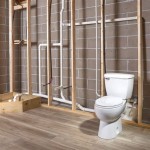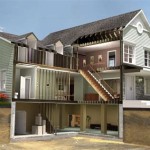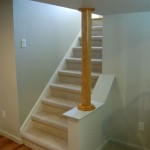How Much Does It To Install a Basement Window?
Adding or replacing basement windows can significantly improve a home's functionality and value. Natural light brightens the space, enhancing its livability, while proper ventilation reduces moisture and the risk of mold. However, homeowners often wonder about the associated costs. This article explores the various factors influencing basement window installation expenses.
The cost of basement window installation varies considerably depending on several key factors. These include the type and size of the window, the materials used, the complexity of the installation, and the local labor rates. Understanding these factors allows homeowners to make informed decisions and budget accordingly.
Window type significantly impacts the overall cost. Egress windows, designed for emergency escape, typically cost more due to their larger size and specific building code requirements. Standard basement windows are generally less expensive but offer less functionality in terms of emergency egress. Furthermore, hopper windows, casement windows, and sliding windows each have their own price points based on their design and mechanisms.
Window size directly correlates with cost. Larger windows require more materials and labor, thus increasing the overall expense. Homeowners should carefully consider their needs and the available space when selecting window dimensions. Measuring the existing window openings accurately is crucial for obtaining precise cost estimates.
Material selection also plays a significant role in determining the final cost. Common window frame materials include vinyl, wood, and aluminum. Vinyl windows are generally the most affordable and offer good energy efficiency. Wood windows offer aesthetic appeal but require more maintenance. Aluminum windows provide durability and strength but can be more expensive. Glass options, such as double-paned or triple-paned glass with low-E coatings, also influence the price and energy performance of the window.
Installation complexity can significantly affect labor costs. Existing window openings may require modifications, such as enlarging or resizing, which adds to the project's scope and expense. Furthermore, homes with concrete or brick foundations typically present more challenging installations compared to those with wood framing. If the installation requires specialized equipment or expertise, the cost will likely increase.
Geographic location and local labor rates contribute to the price variation. Labor costs tend to be higher in metropolitan areas with a higher cost of living. Obtaining multiple quotes from reputable contractors in the area is essential for comparing prices and ensuring a fair market value.
Permits and inspections are necessary for most basement window installations. These costs vary depending on local regulations and should be factored into the overall budget. Contractors can typically advise on the permit requirements and associated fees.
Additional costs may arise depending on the specific project requirements. These might include excavation and landscaping, waterproofing measures, or the addition of window wells. Window wells are essential for providing light and ventilation to below-grade windows and preventing soil and water from accumulating against the window. They come in various materials and sizes, impacting the final project cost.
Proper insulation around the window frame is vital for maximizing energy efficiency and preventing drafts. While this adds to the initial installation cost, the long-term savings on energy bills can offset this expense. Contractors can advise on the most suitable insulation materials and techniques for basement window installations.
Beyond the direct costs of materials and labor, homeowners should consider the potential return on investment. Upgrading basement windows can enhance the home's value and appeal to potential buyers. The improved aesthetics, functionality, and energy efficiency can make the property more desirable, potentially leading to a higher resale value.
Obtaining detailed estimates from multiple contractors is crucial for accurate budgeting. These estimates should outline the scope of work, materials used, labor costs, and any additional expenses. Comparing estimates allows homeowners to make informed decisions based on price, quality, and contractor reputation.
Clear communication with contractors is essential throughout the project. Discussing the project's specifics, including the desired window type, size, and materials, ensures that everyone is on the same page. Asking questions about the installation process, timeline, and payment schedule helps manage expectations and avoid misunderstandings.
Financing options may be available for homeowners who prefer not to pay the entire cost upfront. Exploring financing options, such as home improvement loans or lines of credit, can help spread the cost over time and make the project more manageable financially.
Regular maintenance is essential for extending the lifespan of basement windows and ensuring their optimal performance. Cleaning the windows, inspecting seals for leaks, and lubricating moving parts can prevent issues and maintain energy efficiency. Contractors can provide guidance on proper maintenance procedures.

Install A Basement Window Diy Or Hire Pro Modernize

Fixr Com Basement Windows Replacement Cost Window Installation

How Much Does An Egress Windows Cost To Install In 2024 Forbes Home

How Much Does It Cost To Replace A Basement Window Well Homeserve Usa

Basement Window Installation And Replacement Cost

How To Replace A Basement Window In Concrete

Basement Window Installation And Replacement Cost

How Much Do Egress Windows Cost Peak

Basement Egress Window Cost And Installing An

Estimating The Egress Window Calgary Cost







